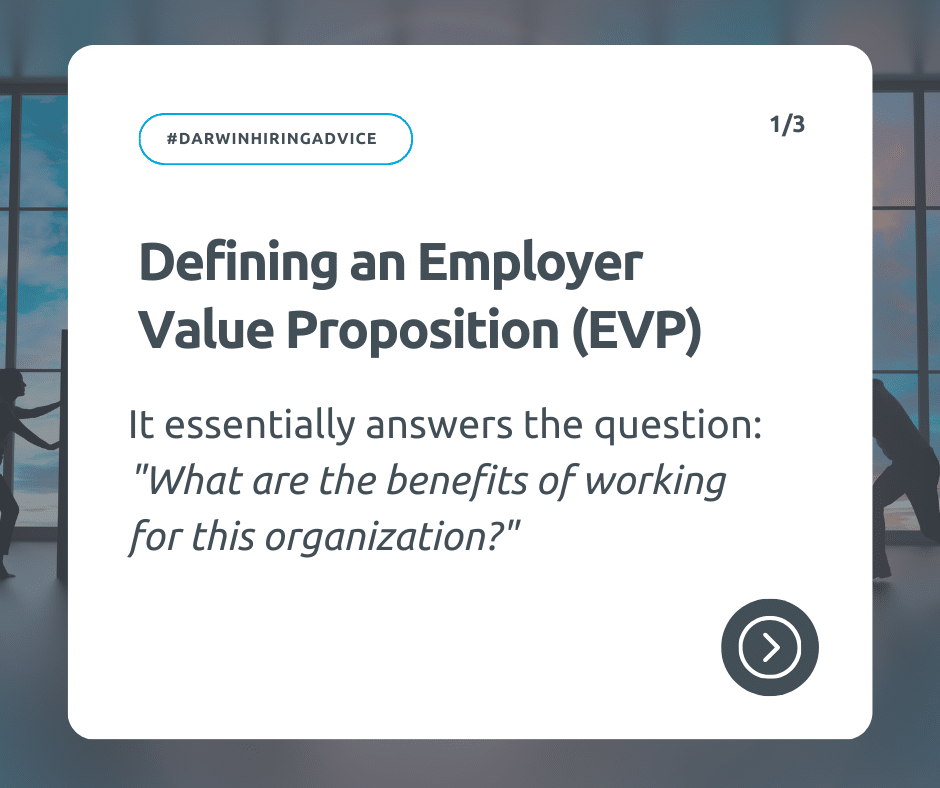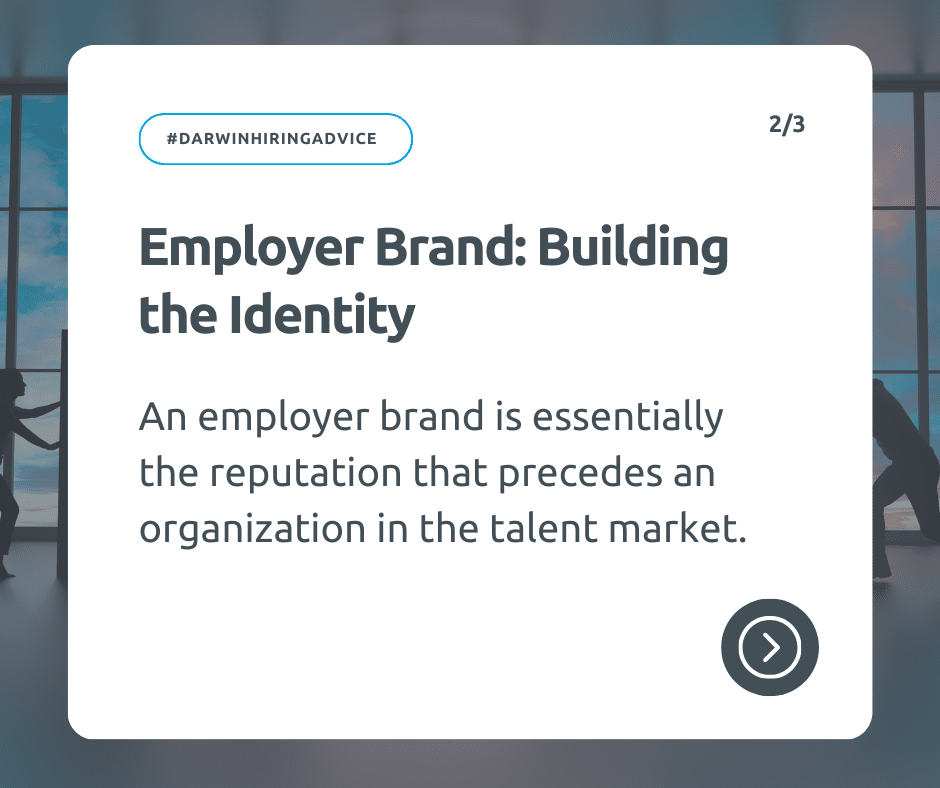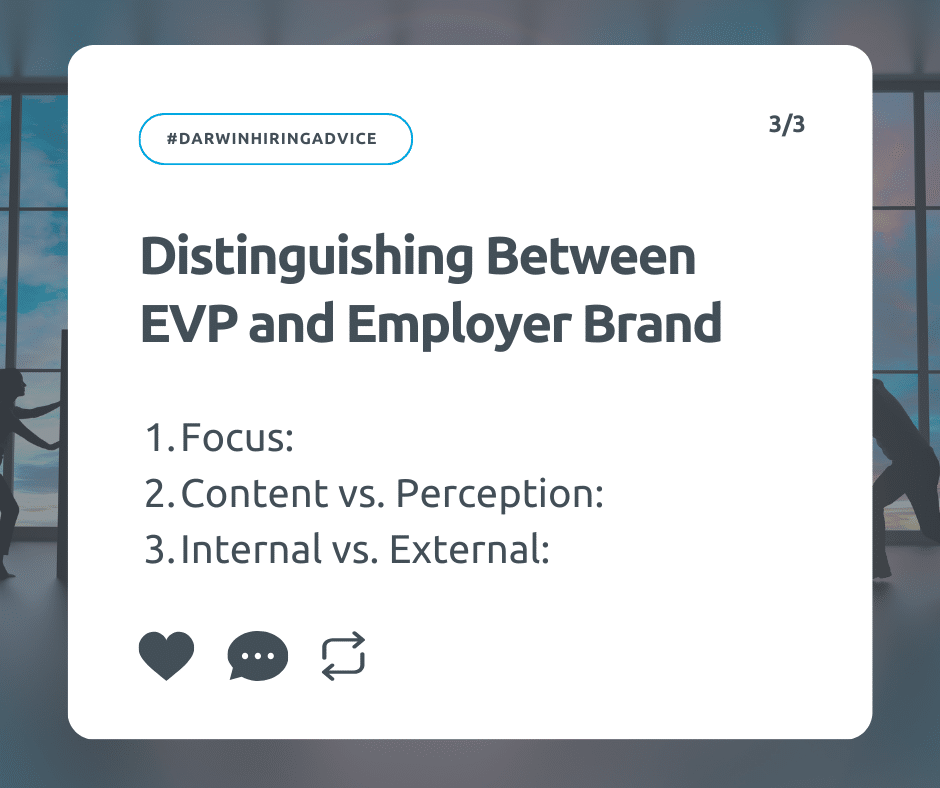Employer Value Proposition (EVP) and Employer Brand are two terms that often take center stage in the ever-evolving talent acquisition and retention landscape.
Although these concepts might seem similar at first glance, they play distinct roles in shaping an organization’s reputation and attractiveness to prospective and current employees.
Let’s delve into the nuances that set EVP and Employer Brand apart.

Defining the Employer Value Proposition (EVP)
An Employer Value Proposition (EVP) is a set of benefits and rewards that an organization offers to its employees in exchange for their skills, experience, and dedication. Consider it the tangible and intangible factors that make an organization attractive to employees.
These can include competitive salaries, comprehensive benefits packages, opportunities for career advancement, a supportive work culture, flexible work arrangements, and a strong emphasis on work-life balance.
It essentially answers the question: “What are the benefits of working for this organization?”
Creating a compelling EVP involves identifying the qualities that make the organization stand out and aligning them with the needs and aspirations of current and potential employees.
Understanding the workforce demographics, market trends, and organizational culture is essential.
In addition to attracting top talent, a well-defined EVP promotes employee engagement, retention, and productivity.

Employer Brand: Building the Identity
EVP focuses on the value proposition provided to employees, while Employer Brand focuses on how internal and external stakeholders perceive the organization. It represents the collective beliefs, values, and experiences associated with the organization’s identity as an employer.
An employer brand is essentially the reputation that precedes an organization in the talent market.
It encompasses various touchpoints, such as company culture, employee testimonials, recruitment marketing campaigns, and social media presence.
In addition to attracting top talent, a strong Employer Brand cultivates loyalty among current employees.

Distinguishing Between EVP and Employer Brand
Employer Brand and EVP are interconnected, but serve distinct purposes:
- Focus: Employee Value Proposition emphasizes the value proposition offered to employees, whereas Employer Brand focuses on the company’s reputation as an employer.
- Content vs. Perception: EVP deals with the tangible and intangible rewards and benefits, while Employer Brand deals with how these offerings are perceived by internal and external audiences.
- Internal vs. External: EVP primarily targets current and potential employees, influencing their expectations and experiences. In contrast, the Employer Brand affects how candidates, customers, investors, and other stakeholders view the organization.
While EVP defines what an organization offers its employees, Employer Brand shapes how employees perceive the organization. In today’s competitive job market, both are essential components of a successful talent strategy.
For more information on how to build an Employer Value Proposition (EVP), please click here.





